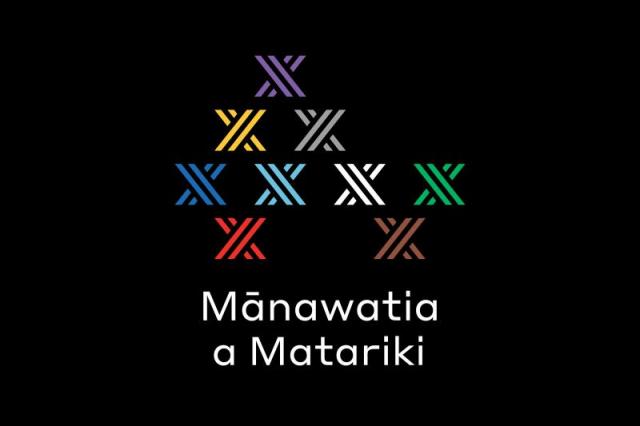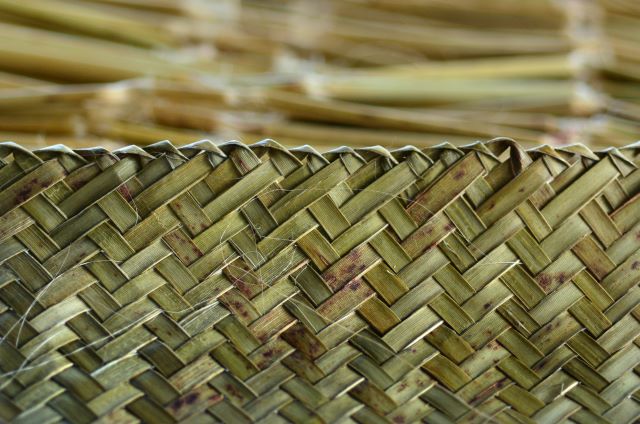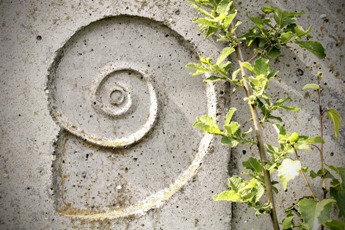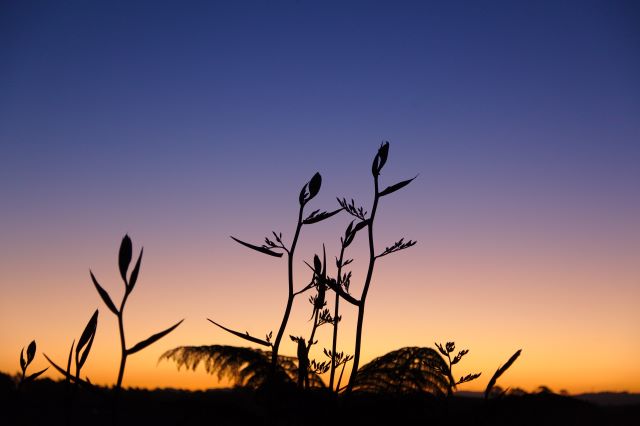Celebrating Matariki, resources for healing
Thu 23 Jun 2022
In observance of Matariki, we highlight Kaupapa Māori approaches to wellbeing and healing.

Matariki
Matariki is the Māori name for the cluster of stars that rises in midwinter and signals the start of the Māori new year. Starting in 2022, a public holiday will mark Matariki in June or July each year. This year, the public holiday is on 24 June 2022.
Iwi across Aotearoa understand and celebrate Matariki in different ways and at different times. Paul Meredith writes for Te Ara (the Encyclopedia of New Zealand):
"Traditionally, Matariki was a time to acknowledge the dead and to release their spirits to become stars. It was also a time to reflect, to be thankful to the gods for the harvest, to feast and to share the bounty of the harvest with family and friends."
The official website for the Matariki public holiday from Te Arawhiti - The Office for Crown Māori Relations has information about Matariki as a time for remembrance, celebrating the present and looking to the future: www.matariki.net.nz. The website also has resources and lists events around Aotearoa.
Professor Rangi Mātāmua (Tūhoe) is a Māori scholar who has spent over 20 years researching Matariki and Māori astronomy. Learn more from his website Living by the stars and his book Matariki Te Whetū Tapu o te Tau (in te reo Māori) | Matariki The Star of the Year (in English).
Te Tāhuhu o te Mātauranga | The Ministry of Education, in collaboration with Dr Rangi Mātāmua and the Matariki Advisory Group, has created resources to help bring Mātauranga Māori to life through Matariki. The online resources are available on the education portal Kauwhata Reo.
To learn more see these articles from E-Tangata:
- Finding my taha Māori through Matariki by Olive Karena-Lockyer
- How Matariki will connect us all by Rangi Mātāmua
- Rangi Matamua: Matariki and Māori astronomy, an interview by Dale Husband
Kaupapa Māori approaches to wellbeing and healing
Matariki encourages us to reflect on the past and look to the future and in doing so highlights the need for healing and a focus on strengthening wellbeing.
In announcing Te Aorerekura: National Strategy to Eliminate Family Violence and Sexual Violence, Minister for the Prevention of Family Violence Marama Davidson said “Te Aorerekura sets a collective ambition to create peaceful homes where children, families and whānau thrive; to enable safe communities where all people are respected, and support the wellbeing of our nation.” She went on to say that "Te Aorerekura sets us on an intergenerational journey towards wellbeing." Of the shifts outlined for change, Shift 1 | Hōkaitanga Tahi is Towards strength-based wellbeing and Shift 6 | Hōkaitanga Ono is Towards increased capacity for healing.
Professors Linda Tuhiwai Smith and Leonie Pihama are leading a research project called He Oranga Ngākau. Part of the He Waka Eke Noa group of projects examining Māori cultural frameworks for the treatment and prevention of family and sexual violence, the project is looking at ways to heal intergenerational pain and prevent whānau violence. Linda Tuhiwai Smith reflected on their work saying:
"In Aotearoa, we’ve been using something called the “trauma-informed care” model in our clinics and health organisations to try to deal with these soul wounds. Initially, Māori were quite excited about this approach, thinking: “Yes, this is for us.”
But, in reality, the model is a very contained and constrained one. It came to us from western clinical practice in the UK and the US — where they were using trauma-informed care as a way to treat a very individualised, very singular notion of what trauma is."
And she went on to say:
"What we know is that by relying on western clinical practice, we’ve failed to bring in the essential sense-making element of healing.
The time has come for a kaupapa Māori model, where we use healing to address our intergenerational and historical trauma, and our family and sexual violence.
This means more than just trying to describe our wounds, our hakihaki, our sores.
There’s so much research already that talks about all the issues that we have, and all our problems. And that research is overwhelmingly unhelpful. Because, within it, there’s no theory of transformation or redress.
What’s missing are the solutions. That is something that we address through a kaupapa Māori approach to trauma. Kaupapa Māori is for doing and living and taking action.
Māori practitioners have philosophies and practices for healing trauma. That’s where the strengths and solutions lie. Not way out there somewhere in the wonderland of research, but in our own worlds, and with our people who’ve been experts in these areas. They have the thinking that will give us solutions."
The research team has published the book Whāia Te Ara Ora: Understanding and Healing the Impact of Historical Trauma and Sexual Violence for Māori (2022). The book explores Māori views on historical and intergenerational trauma, the impact of sexual violence on Māori whānau, hapū and iwi, and how tikanga (cultural understandings and practices) can foster healing. There are also posters and resources that address Kaupapa Māori analysis of colonial risk factors, Kaupapa Māori Principles, and Kaupapa Māori Principles & Healing Trauma.
The team have also been sharing learnings from He Waka Eke Noa in a series of online webinars. Recordings from the webinars are available on the following topics:
- He Oranga Ngākau: Māori Understandings of Trauma Informed Care
- Ka mua, Ka muri: Looking to our past to move forward: Whakataukī as Inspiration and Guidance for Māori
- He Waka Eke Noa Kaupapa Māori Survey – A brief Overview of Results
- Te Wairuatanga o te Kuia i Tipu Ake i te Ngahere (The Spirituality of Kuia who grew up amongst the Trees)
- Through Reciprocity Gifts are Transformed
- Settler Colonialism as a Social Determinant of Indigenous Health
- Reflections on 'Nga Vaka o Kāinga Tapu - A Pacific Conceptual Framework to Address Family Violence in New Zealand'
Leonie Pihama, Ngaropi Cameron and Rihi Te Nana have previously written an NZFVC Issues Paper on Historical trauma and whānau violence (2019). Also see our Historical trauma and whānau violence webinar from Leonie Pihama.
Te Atawhai o Te Ao is hosting 2022 He Kokonga Ngākau Symposium - a symposium of Māori experiences of intergenerational trauma and recovery on 19 August 2022. The event is free and will be hosted online. The symposium is for community researchers, whānau, hapū, iwi, service providers, current Master’s and doctoral Māori students, those who have completed their studies, and others who are interested in Māori experiences of intergenerational trauma and healing.
The research institute Te Atawhai o Te Ao recently secured seven years of funding from the Health Research Council to support research to end intergenerational trauma. The funding builds on Te Atawhai o Te Ao's previous He Kokonga Whare: Māori Intergenerational Trauma and Healing Research Programme. The research published a number of reports and resources from this work including:
- He Korowai Aroha, He Pā Harakeke: Healing Intergenerational Trauma Through the Reclaiming of Customary Child-Rearing Practices (2021)
- He ara uru ora : traditional Māori understandings of trauma and wellbeing (2019).
Related media
First Matariki holiday marked across New Zealand and the world, Beehive Media release, 24.06.2022
Celebrating Matariki in a Māori way, Stuff, 23.06.2022
Matariki - more than just a public holiday, Te Ao Maori News, 21.06.2022
Celebrating Matariki around the world, RNZ, 19.06.2022
Understanding Mātauranga Māori, E-Tangata, 19.06.2022
Storytime strategies for managing tamariki emotions, Te Ao Māori News, 31.05.2022
New Matariki resources available for schools and kura, Beehive media release, 26.05.2022
Image: Mānawatia a Matariki tohu, official Matariki public holiday logo, copyright and commissioned by the Office for Māori Crown Relations–Te Arawhiti in association with the Matariki Advisory Group and designed by Extended Whānau







